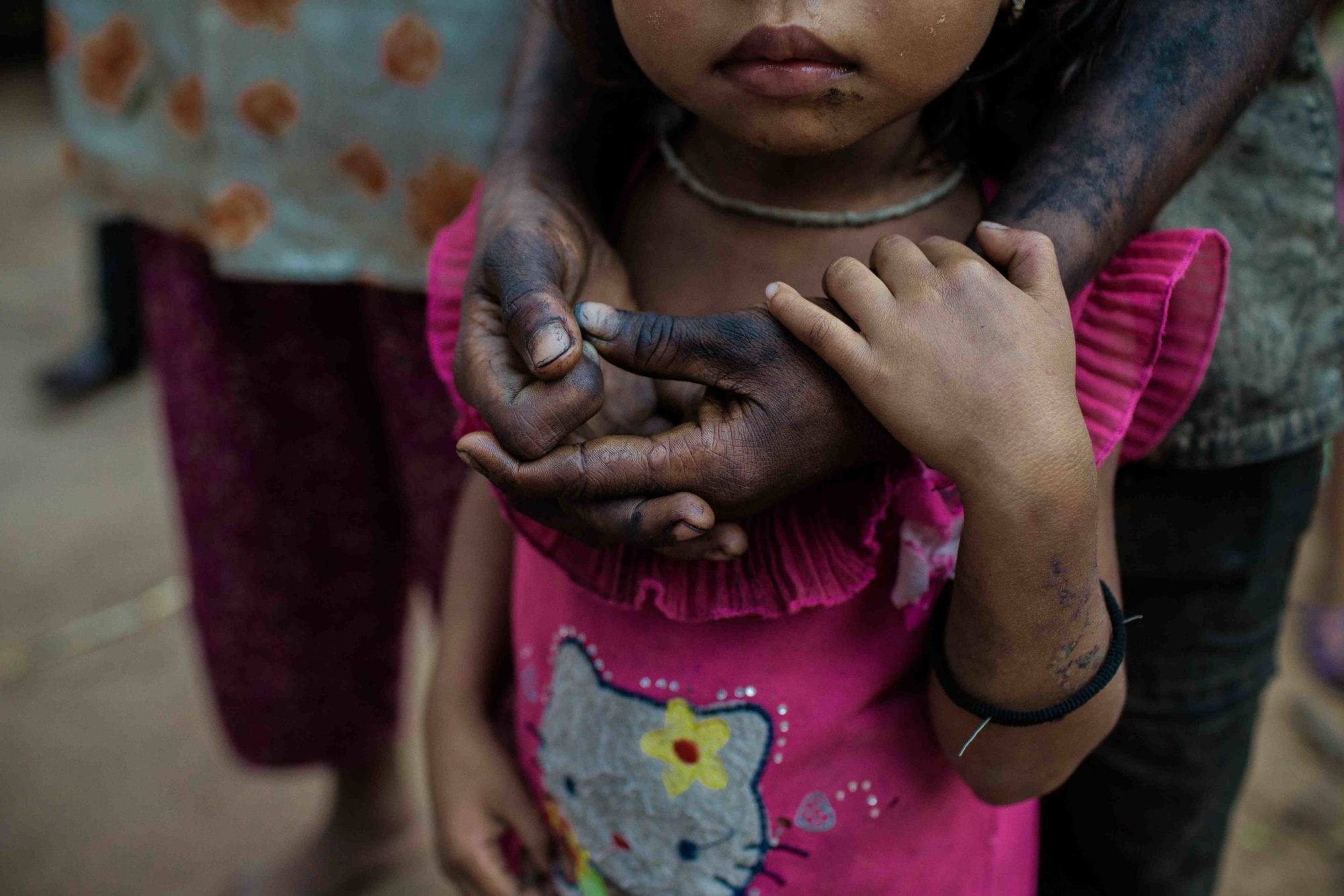(Phnom Penh) – Representatives of seventeen indigenous communities from Cambodia’s Ratanakiri province filed a complaint to the World Bank’s private lending arm today, describing illegal seizures of their farming and grazing land and destruction of their forests and sacred sites. The complaint, submitted on behalf of affected communities by Equitable Cambodia, Cambodian Indigenous Youth Association (CIYA), Indigenous Rights Active Members (IRAM), Highlanders Association and Inclusive Development International (IDI), details how the Bank has invested in companies that are in flagrant violation of Cambodian and international law and its own social and environmental safeguard policies. Indigenous communities, including the Jarai, Tampoun, Kachok and Kroeung peoples, have lost territory and suffered devastating impacts to their livelihoods, cultural practices and way of life as a result.
Ratanakiri’s once abundant forests have been decimated over recent years as a staggering number of large-scale land concessions have been granted to companies, primarily for rubber plantations. One of the companies that has benefited from the concessions is Vietnamese Hoang Anh Gia Lai (HAGL), whose landholdings cover an estimated 5 percent of the province and overlap with significant tracts of indigenous land. Among HAGL’s investors is Dragon Capital, a Vietnamese equity fund, which is owned in part by the International Finance Corporation (IFC).
The complaint, which was submitted to IFC’s internal watchdog, the Compliance Advisor Ombudsman (CAO), describes how the Bank failed to conduct an appropriate level of due diligence commensurate to the high-risk nature of its investment and has thereafter consistently failed to monitor and supervise its end use.
In addition to the illegal land seizures in Cambodia, the complaint also draws attention to reports by Global Witness of rights abuses committed against communities in Laos as a result of HAGL’s operations through three rubber concessions. While IDI has been unable to access affected communities in Laos due to the repressive human rights situation there and the serious risks that such engagement could pose to the communities, the complaint urges the CAO to consider initiating a compliance audit of IFC’s sub-projects there.
“We want the World Bank to know that its money is being used destroy our way of life,” said Sal Hneuy, representative of one of the communities that submitted the complaint. “Nowadays, we are surrounded by companies. They have taken our community lands and forests. Soon we fear there will be no more land left for us at all and we will lose our identity. Does the World Bank think this is development?” he asked.
The complaint sets out a litany of harms experienced by the villages, including loss of forest, grazing land, reserved land for shifting cultivation and future generations, spirit forests, burial grounds, access to resin trees and other non-timber forest products that they rely upon. While some households have received inadequate compensation for seized rice fields and farming land, there has been no compensation at all for communal losses. The complaint describes how “the concept of collective ownership over their territory and resources is central to the communities’ identity.” The seizure of their land and destruction of their forests is “particularly devastating” for the communities, because of their reliance on natural sources of food, housing materials, medicines and other needs, and their limited integration into the cash economy.
The complaint sites more than ten violations of Cambodian law, including laws that enshrine the land rights of indigenous communities, protect Cambodia’s forests, including rare tree species, and regulate economic land concessions.
The IFC’s investment was channeled through an intermediary, Dragon Capital Group, which holds an equity stake in HAGL. Last year the CAO released a damning audit report on IFC’s “financial intermediary” investments, which represents nearly half its entire portfolio, finding that the IFC is oblivious to the environmental and social impacts of the end use of its funds.
Natalie Bugalski, Legal Director at IDI, said: “This complaint provides hard evidence that IFC’s investment has ultimately been used to grab land and destroy critical natural resources. IFC’s system for managing social and environmental risk is alarmingly inept at tracking the end use of its investments and safeguarding against these harms.”
The IFC is notoriously non-transparent about its investments, allowing the World Bank Group to contribute significant capital to the private sector, while publicly disclosing only scant information.
David Pred, Managing Director of IDI, said: “IFC operates under a shroud of secrecy, which makes public scrutiny virtually impossible. Meanwhile, it touts its Performance Standards as the gold standard, allowing its clients to use their relationship with the World Bank to attract other investors who may otherwise hold back from high-risk projects in frontier markets like Cambodia.”
“The complete lack of transparency around financial market investments means that it is highly likely that the Bank is financing land grabs around the world that will never be brought to light,” he added.
The complaint says that due to their deep connection to their lands and forests, the communities want their lands, wrongly seized by HAGL, to be returned to them. Complainants say they “do not want cash compensation [for their land] because it cannot be inherited by the next generation”. They say, that while land can continue to feed them and their children forever, if they receive money “soon it will be gone.”
Pheap Sochea, President of CIYA, said: “All the indigenous lands and territories that were illegally seized must be returned to the people. This is their right as Indigenous Peoples under Cambodian and international law.”
Eang Vuthy, Executive Director of Equitable Cambodia said, “We hope that the CAO can help bring the company and its investors around the table to find a resolution that fully respects the rights of the affected indigenous communities and Cambodian law.”
Additional information is available here.
The full complaint is available here.


